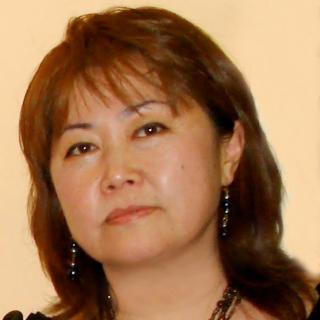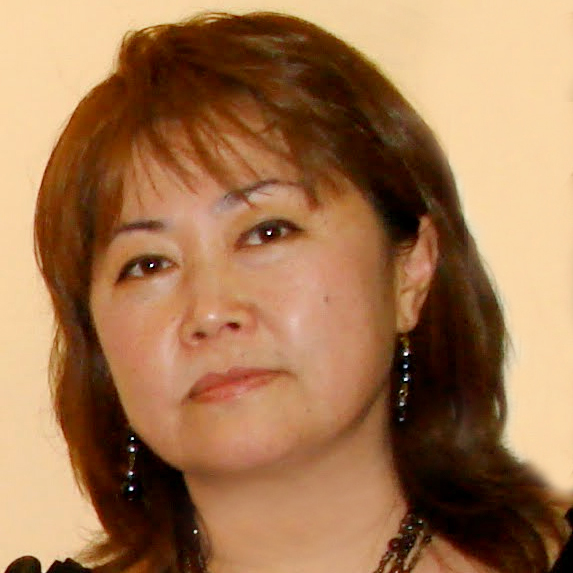
Svetlana D. Pack, Ph.D.
- Center for Cancer Research
- National Cancer Institute
- Building 10 - 2S235 (office) / 3S255 (Lab)
- Bethesda, MD 20892
- 301-480-4204
- 301-339-4531
- spack@mail.nih.gov
RESEARCH SUMMARY
Dr. Pack's research interests range from molecular and cell biology to clinical investigations and specifically include mechanisms of tumor formation, aneuploidy, apoptosis, anticancer therapeutics with emphasis on translation of basic science into new anticancer strategies and development of the novel clinical diagnostics. She studied hereditary neoplastic syndromes: von Hippel-Lindau syndrome (VHL), multiple Endocrine Neoplasia, type 1 and 2, (MEN-1, MEN-2), Hereditary Papillary Renal Cell carcinoma (HPRCC), Carney Complex (CC), sporadic cancer, elucidating molecular mechanisms of tumor and cancer initiation and progression, the development of clinical cytogenetic diagnostic assays; and anticancer molecular targets.
Areas of Expertise
Research
Dr. Pack's research interests range from molecular and cell biology to clinical investigations and specifically include mechanisms of tumor formation, aneuploidy, apoptosis, anticancer therapeutics with emphasis on translation of basic science into new anticancer strategies and development of the novel clinical diagnostics. She studied hereditary neoplastic syndromes: von Hippel-Lindau syndrome (VHL), multiple Endocrine Neoplasia, type 1 and 2, (MEN-1, MEN-2), Hereditary Papillary Renal Cell carcinoma (HPRCC), Carney Complex (CC), sporadic cancer, elucidating molecular mechanisms of tumor and cancer initiation and progression, the development of clinical cytogenetic diagnostic assays; and anticancer molecular targets. Dr. Pack together with Zhengping Zhuang proposed the two-hit model for oncogenes in tumor formation exemplified by c-MET oncogene in HPRCC, familial tumor syndrome. She was part of collaborating efforts with Constantine Stratakis (NICHD) to identify the PRKARIA (protein kinase A regulatory subunit 1A) as Carney Complex causative gene. While at NCI Dr. Pack worked with a team of pathologists to develop cutting edge methods in molecular cytogenetics for the detection of genetic alterations in tumor cells and tissues based on fluorescence in situ hybridization (FISH), fiber FISH, comparative genomic hybridization (CGH), spectral karyotyping (SKY). She played key roles in developing new methods and validating pilot assays that were finalized the routine service lab to become standardized laboratory tests.
Some of her innovative developments in clinical cancer genetics include novel approaches and new genetic markers for clinical diagnostics which provide more sensitive and accurate ways to detect small numbers of genetically altered cells in surgical pathology specimens. Among them are - detection of single metastatic tumor cells in the lymph node tissue ('micro-micrometastases') by FISH, cited by Helix Magazine as 'one of the most exciting research developments'. - 'marginal mapping', proposed for the identification of single tumor cells in the surgical tumor margins in melanoma. A 'quick FISH' applied on touch preps from the resected tumor margins can inform a surgeon as to the presence of residual tumor cells in surrounding 'normal tissue'. The approach has diagnostic potential for different types of solid tumors as an intra-operative consultation. - development of FISH diagnostic assay for the detection of the germline deletions in VHL syndrome comprising near 20% of VHL families. Identification of the first case of mosaicism in VHL syndrome. - Among contributions that 'significantly promote the mission of the NCI' is the work on dual oncogene targeting that received coverage by CCR Frontiers in Science as 'representing some of the most exciting research done at the NCI'. This study showed that simultaneous inhibition of both EGFR and ErbB2 in NIH:OVCAR-8 cells by both antisense RNAs and monoclonal antibodies resulted in the inhibition of cancer cell invasiveness, and a reversal of the malignant phenotype, demonstrating great potential for a dual-oncogene targeting approach. The Chromosome Pathology Section has two components: clinical diagnostics and research. 1) Clinical diagnostic service for cancer patients coming to NCI-CCR on clinical trials (FISH diagnostic tests); 2) Investigation of mechanisms of tumor formation, search for novel cancer targets, development of new methods for cancer detection, diagnostics, and tumor classification.
Publications
- Bibliography Link
- View Dr. Pack's Google Scholar page
Genomic profiling of multiple sequentially acquired tumor metastatic sites from an "exceptional responder" lung adenocarcinoma patient reveals extensive genomic heterogeneity and novel somatic variants driving treatment response
CDK4 Amplification Reduces Sensitivity to CDK4/6 Inhibition in Fusion-Positive Rhabdomyosarcoma
Molecular profiling and targeted therapy for advanced thoracic malignancies: a biomarker-derived, multiarm, multihistology phase II basket trial
PD-1 Blockade in Mediastinal Gray-Zone Lymphoma
MYC gene rearrangement in diffuse large B-cell lymphoma does not confer a worse prognosis following dose-adjusted EPOCH-R. Leuk Lymphoma
Biography

Svetlana D. Pack, Ph.D.
Dr. Pack completed her undergraduate degree in biology at Novosibirsk State University in Novosibirsk Akademgorodok, Russia. She received her Ph.D. from Institute of Cytology and Genetics in Novosibirsk, Russian Academy of Sciences, after completing her training in Mammalian and Human Genetics/Cytogenetics. She came to NIH in 1993 and did her postdoctoral research training in Clinical Cytogenetics at Diagnostics Development Branch at the National Human Genome Research Institute (NHGRI) and in Cancer Genetics in the Laboratory of Pathology at NCI. In 1999, as Special Expert, Dr. Pack moved to the NINDS/NIH and in 2003 she joined the Laboratory of Immunopathology at the National Institute of Allergy and Infectious Diseases (NIAID). She currently serves as the Head of Chromosome Pathology Section and Deputy Head of the Experimental Pathology Lab in the Laboratory of Pathology, NCI, CCR.
